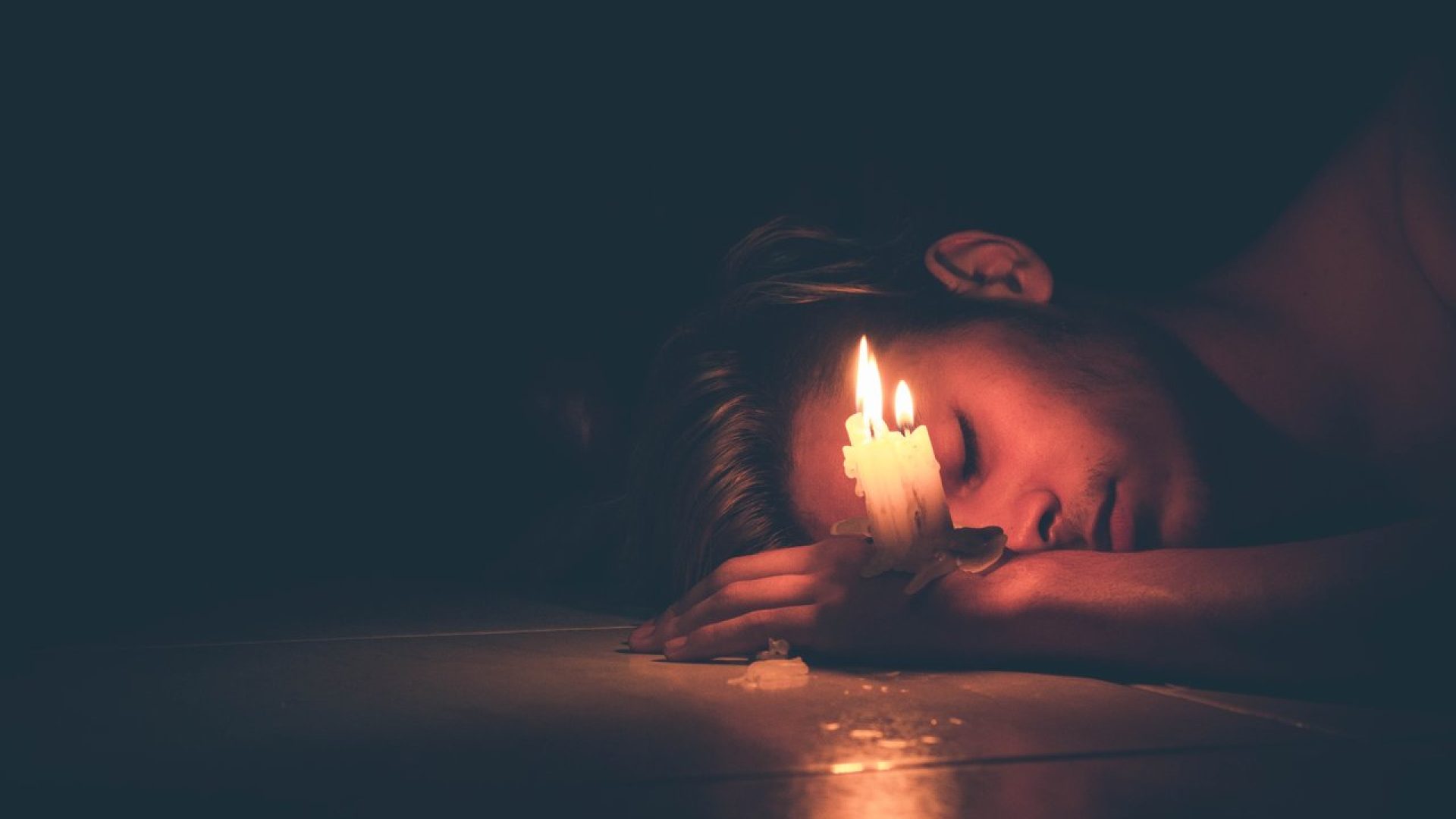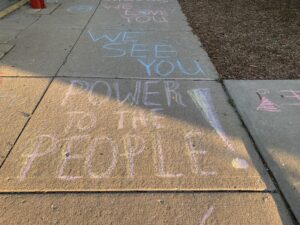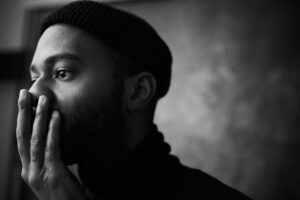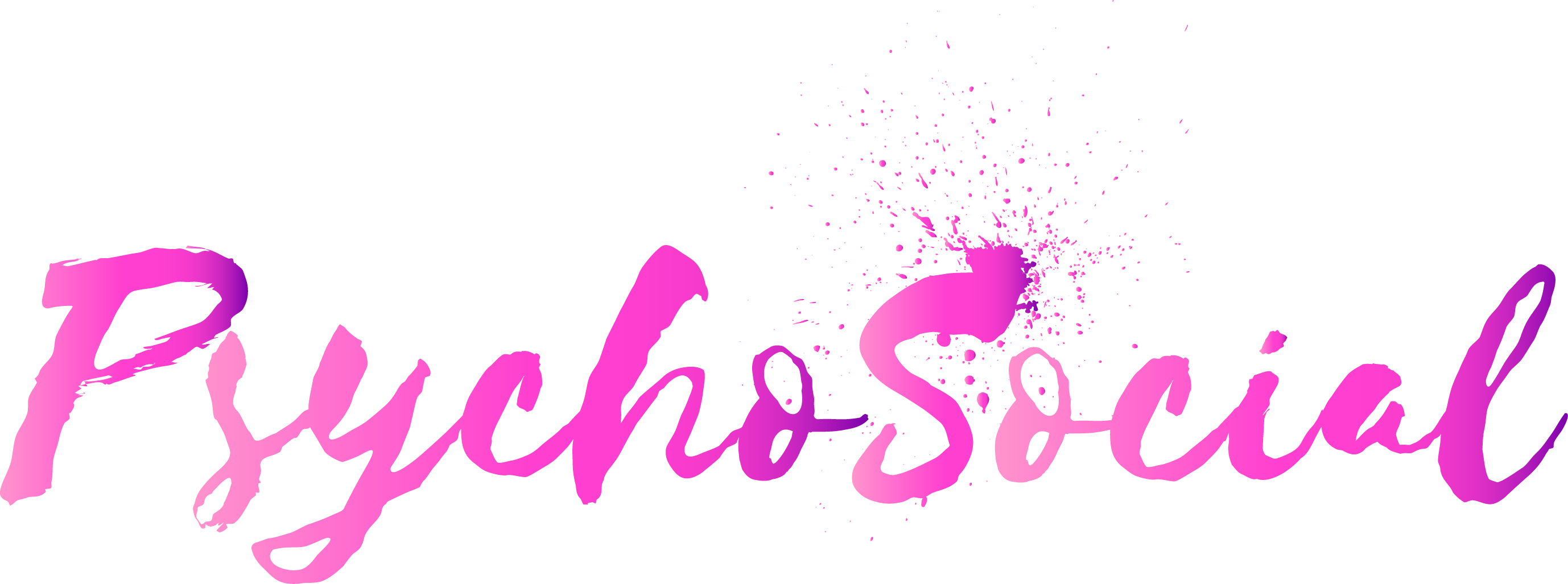Anxiety is a natural part of being human...
In my work as a therapist, one of the most common issues I come across is anxiety. As someone who also struggles with anxiety, I understand how difficult it can be to navigate day by day. Especially now with so much concern and unknown about the coronavirus outbreak. While everyone’s anxiety and worry are valid, it can also keep us from being present and lead to a deficit in mental health. What I often tell patients/clients who work with me is that “anxiety is a normal part of you.” Often times, people’s goal when it comes to anxiety is to “get rid of it” or “make it go away.” My response is always an empathetic and resounding “we can’t get rid of anxiety, but we can learn to live with it.” It’s not always the response people want to hear, especially when they are paying to solve an issue. Yet, it’s the truth. Anxiety is a natural part of the human experience, and its purpose is to keep us safe. Think of the fight or flight response all of us experience when we go through scary experiences. Our brain literally sends messages to our body to get us prepared to respond to threats.
Unfortunately, some of us deal with chronic anxiety, and it can feel like a constant alarm going off. It’s important to understand the difference between someone having normal anxiety and an anxiety disorder. What is an anxiety disorder? It’s when anxiety becomes uncontrollable, constant, and overwhelming enough that it impacts our day to day functioning (work, relationships, family). Symptoms of anxiety include:
- Excessive worry occurring most days for six months
- Difficulty controlling or coping with the worry
- Restlessness
- Being easily fatigued
- Difficulty concentrating or mind going blank
- Irritability (easily angered)
- Muscle tension
- Sleep disturbance (hard to fall asleep, not sleeping well)
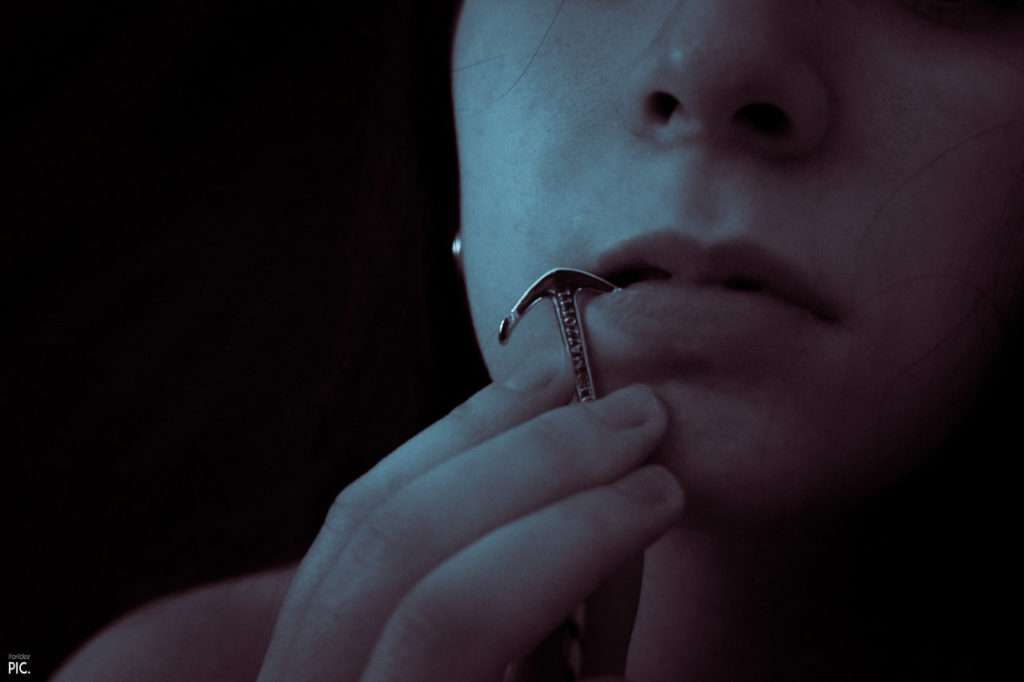
If you have been experiencing these symptoms for six months or longer, then you might be experiencing an anxiety disorder. Talk to a mental health professional or seek services to help find healthy ways of coping and managing anxiety.
In this post, I want to share a couple of resources and exercises I share with my patients to help them manage their anxiety. These are simple things you can do at home; however, always consult a licensed mental health professional as this post is not meant to diagnose or treat anxiety.
- Deep breathing. You can find a helpful guide by clicking here. Deep breathing is a commonly recommended technique for people dealing with anxiety. The reason for this is that when we are feeling anxious, our body begins to react (fight/flight/freeze) and we experience reactions such as increased heart rate, shallow breathing/trouble breathing, sweating, tension in the body, and other physical responses. Deep breathing helps us regulate and support our body in grounding itself and relaxing.
- Meditation. This one is hard, and it takes practice. I know for myself I had a challenging time just clearing my mind. Meditation is meant to be a practice and something we build up. It can be helpful in many ways and gives us a mental break from the uncomfortable experience of chronic worry. If you would like to learn more click here.
- Download “Insight Timer“. I absolutely love this app. There is a subscription; however, I utilize the timer most, and it’s free! The reason why I share this with my patients is that many of us have a hard time getting started with meditation or deep breathing. Insight timer allows you to set the length of time you want to spend meditating and uses a creative way of doing it by letting you choose the type of bell sound you want and how many minutes you want to meditate for. It also lets you see how many days you do it and keeps you accountable.
- Muscle tension is a common symptom of anxiety, and it can cause a lot of discomfort. So what better way to help than to relax our muscles. I love using progressive muscle relaxation because it feels good instantly, and it’s easy to do. If you want to read more click here. Full disclosure: it’s important to always practice safety and not force pressure on any body part if you are experiencing sharp pain.
- Coloring. Yes, coloring. Remember when you were a kid, and you would just color and draw in class? It felt like hours could pass, and you were just lost in your creation. Coloring is a creative and helpful way of self-soothing and distracting us from our intrusive thoughts.
- Therapy. Of course, I have to mention therapy! Not only will you learn the techniques above, but you will also have an opportunity to learn about your own experience with anxiety as well as ways of managing it. Therapy can be expensive, but there are a lot of great professionals out there and services that provide short term or teletherapy (over the phone or webcam). Try checking out one of our partners: Latinx Therapy, Therapy for Latinx, or services such as better help.
Helpful Questions to Ask Yourself About Your Anxiety
Disclaimer: This is not a professional or medical-based survey. This survey is not a replacement for professional or medical advice. If you need mental health or medical advice, consult a mental health or medical professional.
CW/TW: Anxiety
How many times have you seen the word anxiety?
How many times have you felt it?
How many times have you realized you did something out of anxiety instead of your own free will?
How many times have you given anxiety hate?
How many times have you become frustrated and angry at or because of your anxiety?
How has anxiety affected your body?
What body issues have you formed because of your anxiety?
How has your anxiety informed your opinion about your body?
How has anxiety affected your relationship with your environment and yourself?
How has your anxiety impacted your relationship with your friends and with your loved ones?
How has your environment perpetuated and legitimized rather than analyzed and validated your anxiety?
Do you show love towards your anxiety?
How can you show love towards your anxiety if your understanding of love is marred with fear?
How can you show up for others and their anxiety when the way that others show up for you is by justifying your anxious conclusions rather than helping you understand the why and how behind your anxiety?
How can you show up for yourself when the only other example of space you have been given entertains your anxiety rather than soothe it?
How many times, per day, do you feel overwhelmed by your anxiety?
How many times, per day, do you feel sad because of your anxiety?
How many times, per day, do you feel tired because of your anxiety?
How has anxiety affected your daily habits?
How has anxiety affected what hobbies you engage in and those you do not?
How has anxiety affected your eating habits?
How has anxiety affected your sleeping habits?
How has anxiety affected your subconscious?
How does anxiety drive you to action without you ever knowing that it is your anxiety?
How does anxiety affect your emotions?
Do you feel loved, or is your anxiety being quilled by constant affirmation and overwhelming affection from those you feel the love from because anxiety stops you from loving yourself?
Do you feel anger, or is your mind reacting to the constant mental running that anxiety forces you to make?
You have reached the end of the questionnaire.
Are you anxious right now? Then stop moving. Stop clenching your jaw, stop balling up your fists and stop shaking your leg, and take a deep breath.
You are okay. You are loved. You are here.
Anxiety is a part of us, but it doesn’t have to be all of us. We can manage it and not let it get in the way of our goals, relationships, dreams, or day to day. Try these techniques at home or wherever you are.

Luis is a Licensed Marriage & Family Therapist who graduated from Long Beach State University with a Masters degree in Counseling Psychology (2015). He also has a Bachelors's degree in Child and Adolescent Development with an emphasis on Public Policy from San Francisco State University (2011). Luis has over 9 years of experience working with children and families both in education and mental health. Previously, Luis worked for a non-profit agency in San Francisco, CA providing mental health consultation in early head start programs and SFUSD pre-schools. Currently, Luis works at Kaiser in San Francisco providing mental health services.
His therapeutic interests include working with Trauma, the LGBTQ community, Children, Families, Couples, and POC. His personal interests include; Films, Reading, Writing, Art, Travelling, Disney, and Food. He is also a recipient of the California State Stipend award (2015). PsychoSocial is part of Luis' dedication to mental health and an example of his passion to educate others. Luis hopes that through PsychoSocial he will be able to help in the fight to end the stigma around mental illness.
#EndtheStigma
-
Luis Cornejo, LMFThttps://psychosocial.media/author/psychosocial/September 18, 2017
-
Luis Cornejo, LMFThttps://psychosocial.media/author/psychosocial/January 28, 2018
Benjamin "Victor" Pulgar-Guzman has a B.A. in Political Science with a concentration in International Relations. His main area of study concerns the history of international relations and global economics, Marxian and Anarchist political theory, feminist, queer, and race theory and is an avid reader on philosophy and history of religions. Victor is also a producer, singer-songwriter, poet, and writer.
-
Victor Pulgar-Guzmanhttps://psychosocial.media/author/bvictorp/
-
Victor Pulgar-Guzmanhttps://psychosocial.media/author/bvictorp/
-
Victor Pulgar-Guzmanhttps://psychosocial.media/author/bvictorp/July 29, 2020

